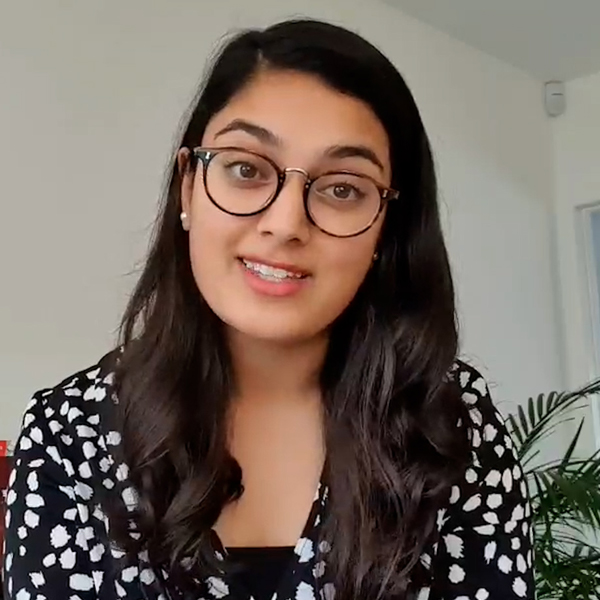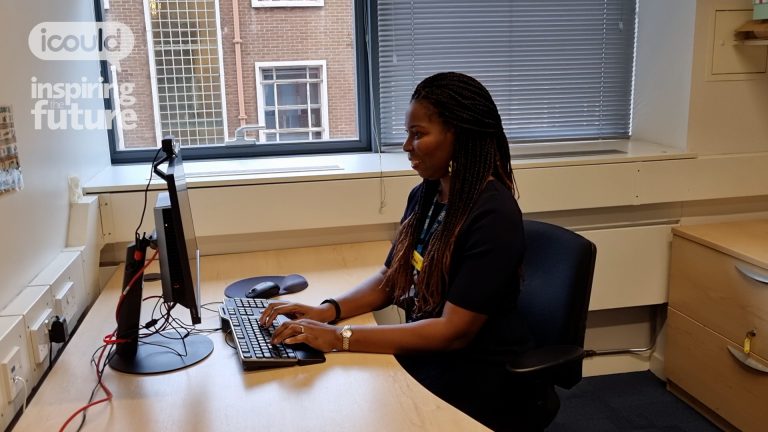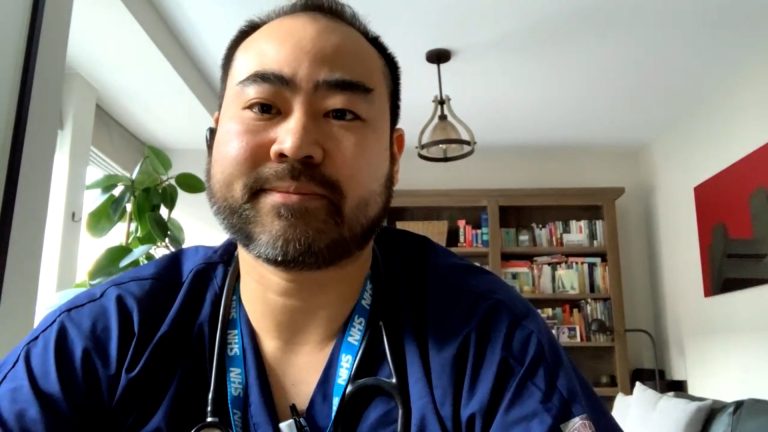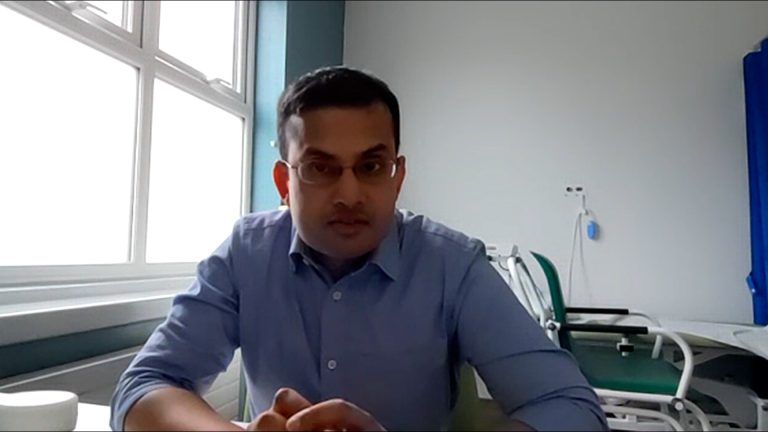Explore: Healthcare
Optometrist
Sheffield Teaching Hospital, NHS
info Issues viewing the video?
| Holly
Optometrist |
|
| 00:07 | Hello. I’m Holly and I’m an optometrist. An optometrist is the same as an optician so I look after the health and the eyesight of my patients. My role as a hospital optometrist is very varied. So in the morning I might be doing a children’s clinic where I check the prescription of children’s eyes and the health of their eyes and in the afternoon I might be seeing diabetic patients who have problems with their eyes as a result of their diabetes. |
| 00:41 | At A-levels I did chemistry, biology and English literature in which I gained ABB and I applied to several universities for optometry. The optometry degree is 3 years studying at university followed by a pre-registration year where you work supervised in clinic. So that could be at an opticians or in a hospital. I chose a hospital setting because that is where my passion was. During that year you are seeing patients but also having regular assessments to ensure that you’re safe to practice. |
| 01:21 | The things that I like about working in a hospital is that I work with a whole host of different professionals. It’s great to be in this big multi-disciplinary team because you can support one another and learn things very easily from one another. It’s also brilliant to work in an opticians. I do some Saturday clinics in opticians as a locum optometrist, which means that you can manage your own time and book in where is needed for you for work. As a optometrist in the community eyecare you are doing regular sight tests but also screening for, if you feel there’s any problems with the health of somebody’s eye such as if you feel they’re diabetic, it can show signs of stroke and it can show signs of that you have high blood pressure or even brain tumours have been picked up at sight tests. These are all things that you would then refer forwards to the hospital or to the GP for further investigation. |
| 02:22 | As an optometrist it would be good for you to have very good personable skills, be very good at communicating, simplifying what you’re telling patients and also the ability to work in a team. So that could be in a hospital or in an optician setting. |
| 02:41 | A piece of advice that I would give to my younger self thinking back would be to work really hard to get where you want but also to accept that sometimes things don’t go to plan and if the plan changes that’s not necessarily a bad thing. I originally wanted to do dentistry and I’m so glad that now I actually am an optometrist and I’m in a field that I really love and I learn every day something new in my role. It’s also worth knowing that in all different degrees, be that healthcare or otherwise, the degree itself is only one part of the journey, and there’s lots of different options and routes to take afterwards. Something that I would definitely encourage if you’re unsure what route you want to go down, make sure you have sat in with somebody to realise what the job does entail. |
| 03:31 | END OF TRANSCRIPTION |
“Accept that sometimes things don’t go to plan and if the plan changes that’s not necessarily a bad thing.” Holly originally wanted to be a dentist before deciding to become an optometrist – a job she really loves.
Related career stories
⇦
⇨







